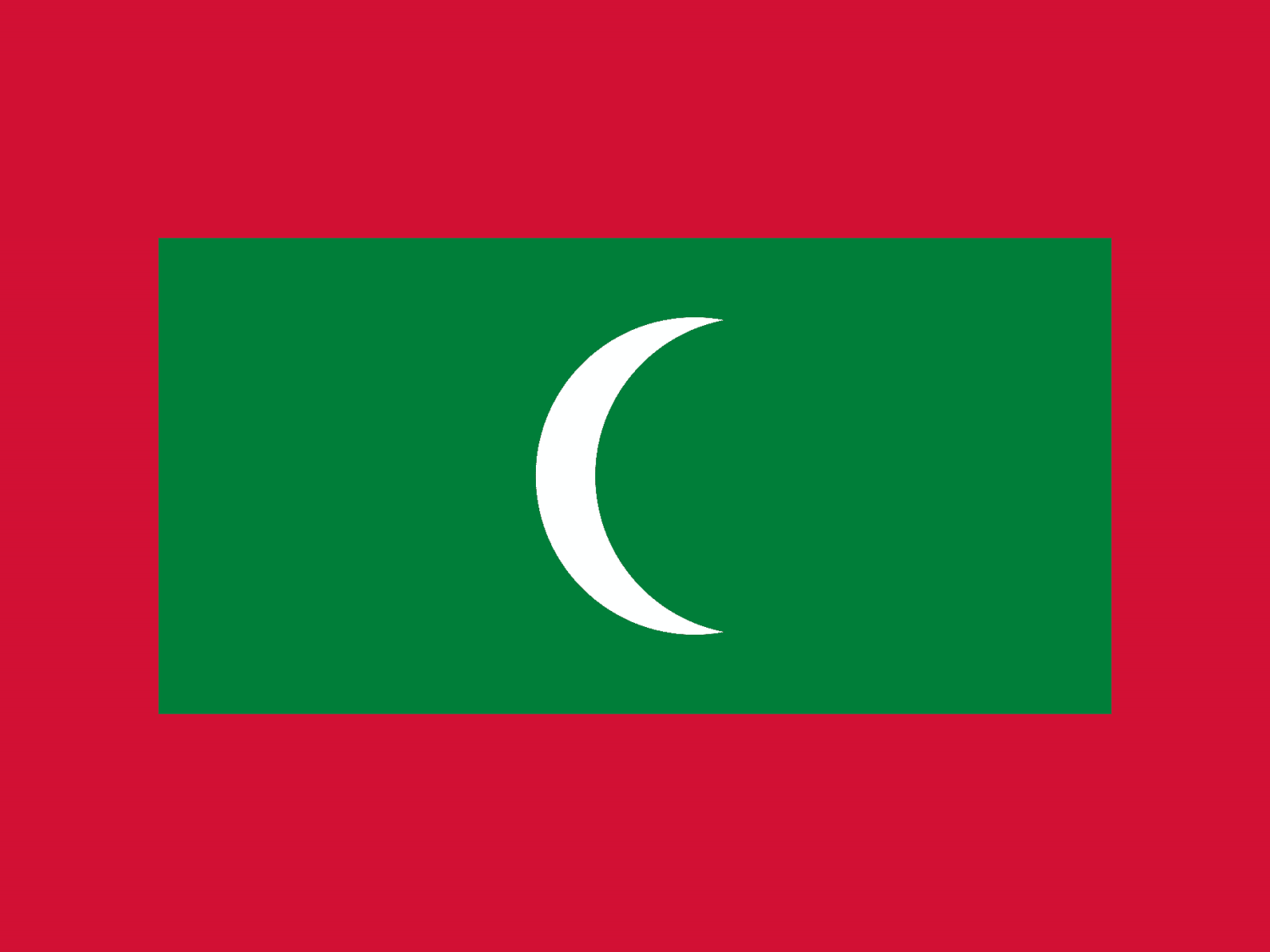Moving to Maldives
Simply move better with reloqio
✔️ Get offers free of charge – No obligation, no worres.
✔️ Quality-tested partners – Reliable and experienced.
✔️ Selection in your region – Find the perfect offer and save up to 45%.

Overview
Introduction to the Maldives
The Maldives, an island nation in the Indian Ocean, is famous for its stunning white-sand beaches, crystal-clear waters, and luxurious resorts. Comprising over 1,000 coral islands, the Maldives is a paradise for those seeking a tranquil lifestyle surrounded by natural beauty. The capital, Malé, is a bustling city that contrasts sharply with the peaceful resorts spread across the atolls. While the Maldives is known for its tourism industry, the country also faces challenges such as limited infrastructure, environmental vulnerabilities, and a high cost of living, which can impact the experience of expatriates.
Why Move to the Maldives
Moving to the Maldives offers the opportunity to live in one of the most beautiful and serene environments in the world. The country’s tourism-driven economy provides opportunities for professionals in hospitality, marine biology, and related fields. The lifestyle is generally relaxed, with a strong emphasis on outdoor activities such as diving, snorkeling, and boating. However, expatriates should be prepared for the challenges of living in a remote location, including limited access to certain goods and services, a high cost of living, and the potential for isolation. Additionally, the Maldives’ strict Islamic laws require adherence to cultural norms, particularly regarding dress and behavior.
Cost of Living in the Maldives
The cost of living in the Maldives is relatively high, especially for expatriates living in resort areas or Malé. Housing is a significant expense, with limited availability of rental properties outside of employer-provided accommodation. Food and imported goods are also expensive due to the country’s reliance on imports. Dining out can be costly, particularly in resorts, although local markets and eateries offer more affordable options. Utilities and transportation can add to the cost, particularly if you need to travel between islands. Overall, while the natural beauty of the Maldives is unparalleled, expatriates need to budget carefully to manage the higher cost of living.
Visa and Residency
Types of Visas
The Maldives offers several types of visas, including tourist, business, and work visas. The most common visa for expatriates is the work visa, which requires sponsorship from a Maldivian employer. The application process involves submitting various documents, such as proof of employment, a valid passport, and sometimes a health check. Tourist visas are easy to obtain for short visits, but they do not allow for employment. It’s important to apply for the correct visa type and ensure all documentation is accurate to avoid delays or complications.
Requirements for Obtaining Residency
Obtaining residency in the Maldives typically begins with securing a work visa. Once in the Maldives, expatriates can apply for a temporary residence permit, which is usually tied to their employment. The process involves submitting proof of employment, housing arrangements, and sometimes a health check. Residency permits are generally valid for one year and can be renewed as long as the expatriate remains employed. Permanent residency is not commonly granted to expatriates, and residency is usually contingent on continued employment. The process can be bureaucratic, so it’s advisable to work closely with your employer to navigate it successfully.
Renewing Residency
Renewing residency in the Maldives involves extending your work visa and residency permit. The renewal process typically requires submitting updated proof of employment and housing, along with any other relevant documents. It’s advisable to start the renewal process well before your current permit expires to avoid any legal issues. Employers often assist with the renewal process, but it’s crucial to stay informed about any changes in immigration laws and ensure all paperwork is submitted on time.
Finding Accommodation
Popular Neighborhoods in the Maldives
In the Maldives, accommodation for expatriates is typically provided by employers, particularly for those working in the tourism industry. In Malé, popular areas for expatriates include Hulhumalé and Villingili, which offer more modern amenities and easier access to the capital’s services and facilities. Housing in these areas can be expensive, and the options are often limited to apartments. For those working on resort islands, accommodation is usually provided on-site, which can vary from basic staff housing to more luxurious options depending on the employer. The quality of housing can vary significantly, so it’s important to clarify what is included in your employment package.
Renting vs Buying Property
Renting is the most common option for expatriates in the Maldives, as foreign ownership of property is highly restricted. Rental properties are available in Malé and some of the larger inhabited islands, but options are limited, and prices can be high. Rental agreements typically require a security deposit and the first month’s rent in advance. Buying property in the Maldives is generally not an option for expatriates, as land ownership is reserved for Maldivian citizens. However, long-term leases are possible in certain cases, particularly for those involved in business ventures or significant investments in the country.
Tips for Finding Accommodation
When searching for accommodation in the Maldives, consider factors such as proximity to work, access to amenities, and transportation options, particularly if you need to travel between islands. Working with a local real estate agent or relying on employer-provided housing can be helpful, especially for expatriates unfamiliar with the area. It’s important to inspect properties carefully before signing a lease, as the quality of housing can vary widely. Be prepared to negotiate rental terms, and ensure that all lease agreements are clear and legally sound. Given the limited availability of high-quality housing, it’s advisable to start your search early.
The Maldives’ location in the Indian Ocean offers opportunities for travel and exploration in neighboring countries. For those interested in exploring the region, the cultural richness and historical sites of Sri Lanka, the tropical beauty of India, or the vibrant cities of Thailand are all within reach.
Settling In
Healthcare System in the Maldives
The healthcare system in the Maldives is limited, particularly outside of Malé. The capital has a few hospitals and private clinics that offer basic medical services, but specialized care and complex treatments may not be available. Many expatriates prefer to travel to nearby countries, such as Sri Lanka or India, for more advanced medical care. It is essential to have comprehensive health insurance that covers private healthcare and potential medical evacuation. Given the country’s remote location and limited medical facilities, access to quality healthcare can be a significant concern, so it’s important to plan accordingly.
Education System in the Maldives
The Maldives offers a limited range of educational options for expatriate families. Public schools follow the Maldivian curriculum and teach primarily in Dhivehi, which can be challenging for non-Dhivehi-speaking children. Most expatriate families opt for private or international schools, which offer curricula based on British or other international systems. These schools are primarily located in Malé and are known for their small class sizes and personalized attention, though fees can be high. Early application is recommended, as spaces in international schools can be limited, particularly in popular grades.
Cultural Etiquette and Customs
The Maldives is a Muslim-majority country with strict Islamic laws, and understanding local customs is crucial for expatriates. Respect for religious practices, modesty in dress, and adherence to social norms are essential aspects of life in the Maldives. Alcohol is only available in resorts, and public displays of affection are discouraged. It’s important to dress modestly, particularly in public areas outside of resorts, where swimwear and revealing clothing are not appropriate. Social interactions are generally formal, and showing respect in both personal and professional settings is crucial. Learning some basic Dhivehi can also enhance your experience and help you integrate more smoothly into Maldivian society.
{filterable_table}
Ready for your move to Maldives? Get free quotes now!
Enquire about moving offers here and get quick answers with cost estimates.
It only takes 2 minutes and you can save up to 45% on your move to Maldives!
